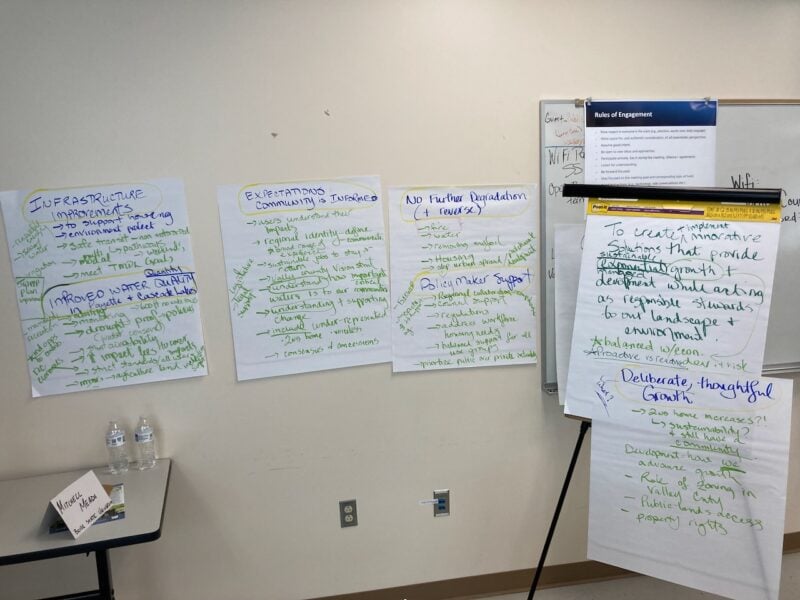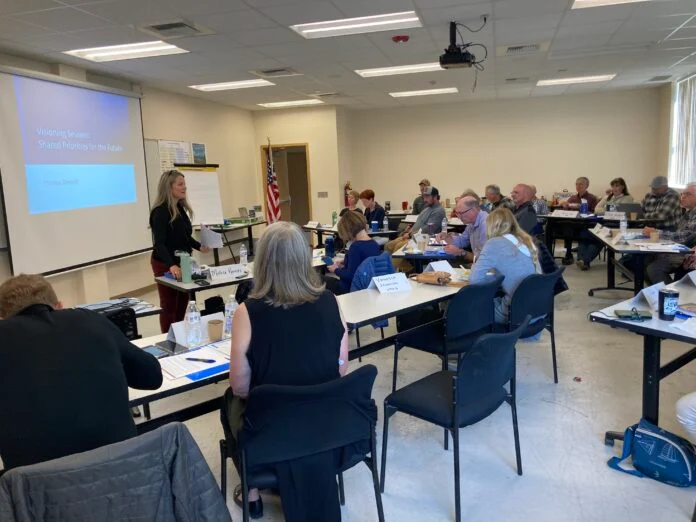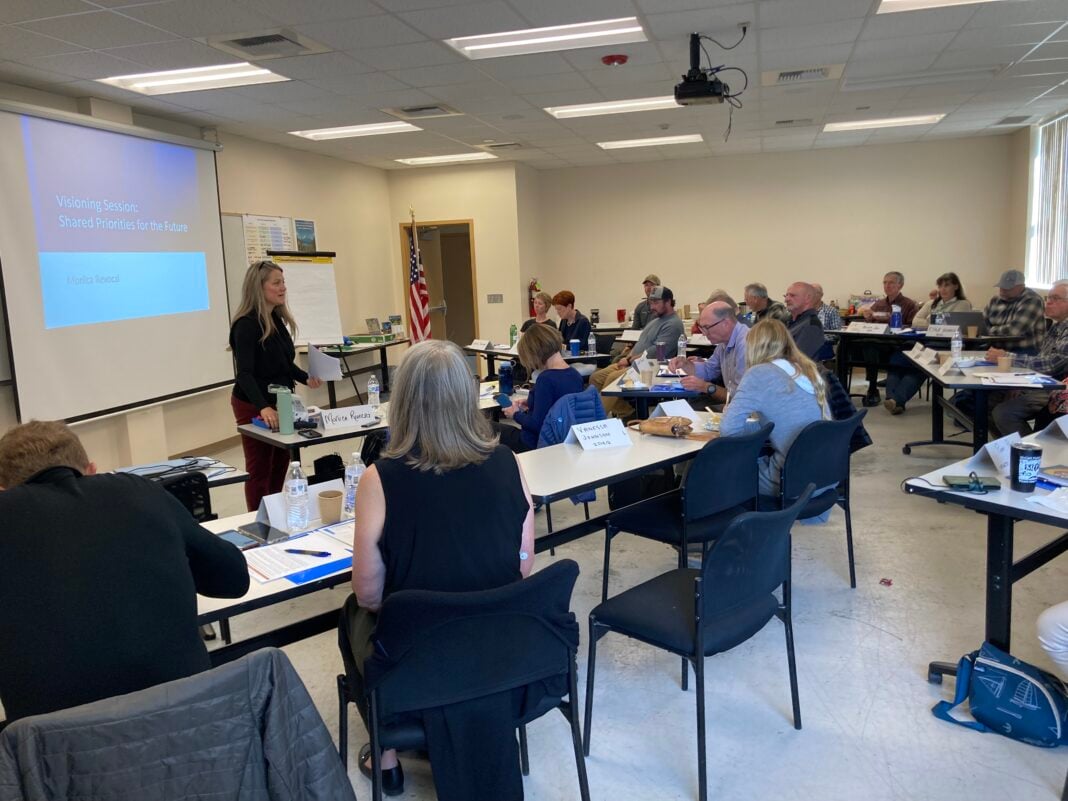A process to develop a plan for regional growth management in Valley County needs to include more local leaders and state agencies, a group of mostly McCall and county officials said Thursday.
The meeting, hosted in Cascade by the Boise State University Resilience Institute, kicked off the second phase of a process to develop collaborative strategies for sustainable growth in the region, which includes all of Valley County and Meadows Valley in northern Adams County.
Specifics for the plan, known as the West Central Mountains Resilience Assessment, are still to be developed. However, it is expected to include a variety of strategies for balancing growth with local stewardship, as well as benchmarks for tracking success.
An exercise at the beginning of the meeting asked attendees to name all other agencies, groups, and interests that should be considered by the plan. About two dozen suggestions poured in, from local school districts to recreation groups and even the short-term rental industry. Hours later, as the meeting was ending, the list still resonated in the room.
“There’s a lot of people not in this room,” Valley County Commissioner Sherry Maupin said. “If we actually want to do something important and bring everybody along with us, so everybody’s on the same page, that is going to take a long conversation.”
While the meeting was well attended by state agencies officials from the City of McCall and Valley County, no representatives from the cities of Cascade, Donnelly, or New Meadows were present. A total of 35 people attended the meeting.
Colby Nielsen, a McCall City Council member, agreed with Maupin and said it would be a “good investment of time and energy” to broaden the process.
“There’s a lot of people doing a lot of things here,” Nielsen said. “It is absolutely necessary that we do connect all of the people.”
The process to develop the plan, formally known as the West Central Mountains Resilience Assessment, is being led by Dr. Brittany Brand, who said the university is “happy to pivot” into a longer, more in-depth planning process.
Public involvement slated for next spring
Additional workshop meetings are scheduled this fall, including with a separate stakeholder group representing the education and employment sectors. Additional comments will be gathered on Nov. 13 at the Economic Summit hosted by the West Central Mountains Economic Development Council, which is partnering with Boise State to develop the resilience plan.
The university plans to conduct public surveys and host community forums next spring to incorporate public comments into the plan, which is expected to be complete in 2026.
The process to develop the plan started with a pre-assessment that was completed over the last year.
Groups and agencies represented at Thursday’s meeting included the Idaho Department of Fish and Game, Idaho Department of Environmental Quality, the Bureau of Reclamation, Friends of Lake Cascade, the Idaho Department of Water Resources, and the Valley County Soil and Water Conservation District, among others.
The process to develop the regional growth plan is funded entirely by a $200,000 grant Boise State was awarded by the National Science Foundation.
University-assisted implementation
Research and data collection for the plan is being led by Brand and her graduate students, who use their technical expertise to develop resilience plans in conjunction with local interests. But the university’s work does not stop there.
“Once the community has their goals and their specific actions, then I can start leveraging the resources and capacity of the university and finding students and faculty experts to start working on some of the implementation,” Brand told Valley Lookout.
Without donors like you, this story would not exist.
Make a donation of any size here
In Kamiah, a similar effort in 2021 yielded $1.5 million in federal grant funding for infrastructure improvements. The grant application was based on an infrastructure asset map and upgrade plan developed by a Boise State student.
“We brought a student in, they did the work, and the city basically copied and pasted the students’ work into a proposal and got it funded,” Brand said.

While no specific goals were developed at Thursday’s meeting, the group did establish six themes that will inform the strategies in the plan. The themes are:
- Infrastructure improvements
- Improved water quality and quantity
- Community expectations and education
- No further degradation of water quality, forest health, and other metrics
- Policymaker support
- Deliberate, thoughtful growth
Several subsets for each focus area were listed by attendees. Topics included establishing traditional zoning across Valley County to water quality and short-term rental management.
Attendees feel ‘momentum’
Harris told Valley Lookout she was excited about the renewed commitment to regional collaboration the rose from Thursday’s meeting.
“This felt to me today like the first time post-COVID that there is momentum and some synergy across the region to move things forward,” she said. “Buy-in is so critical to all that we’re doing.”
Maupin agreed and said the timing of the workshop was apt following a year of McCall Impact Area negotiations that have, at times, been contentious, as Valley Lookout reported.
“It was all voices with a shared, common goal,” she said. “We’re not at each other, we’re with each other. That’s really important for all of our communities.”






